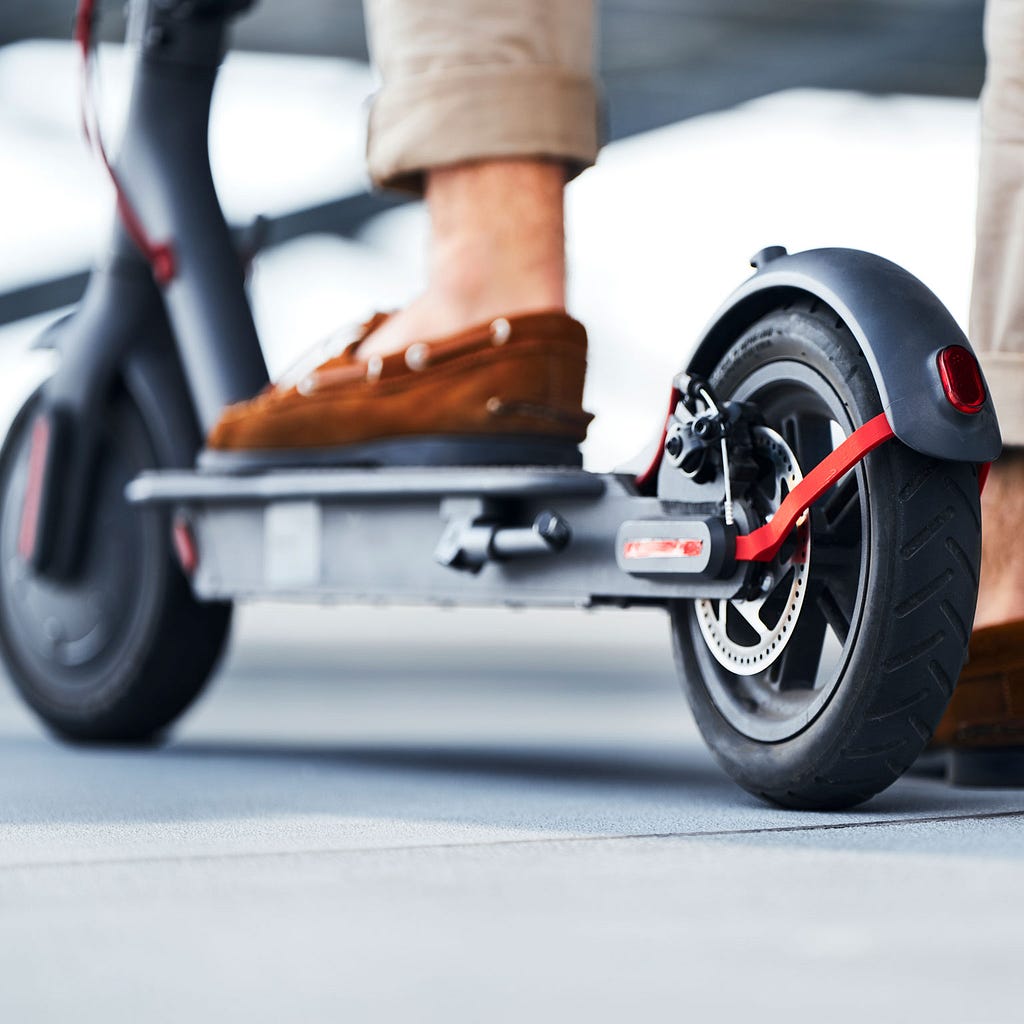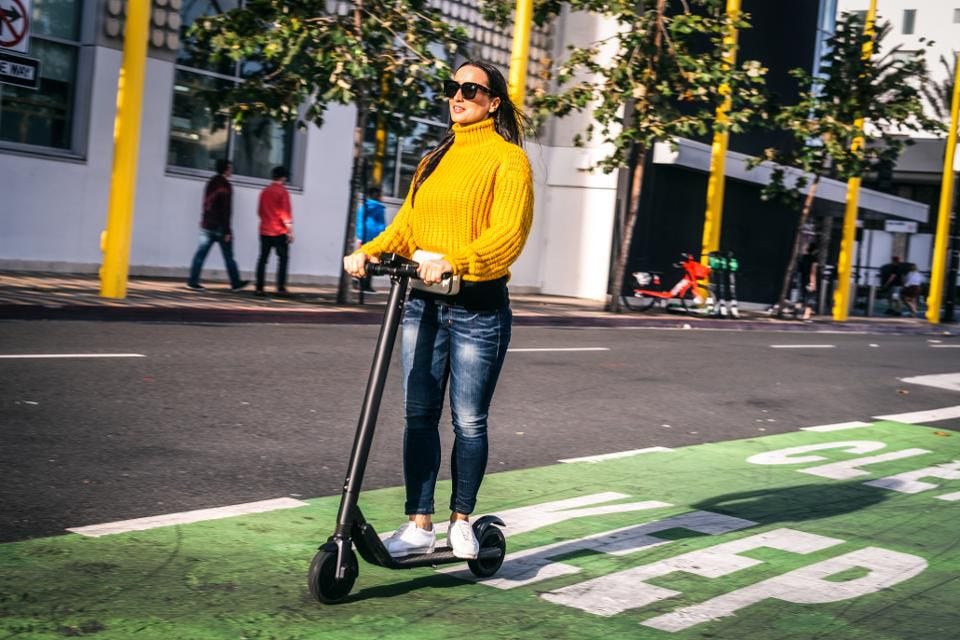Latest news about Bitcoin and all cryptocurrencies. Your daily crypto news habit.

Will the micro-mobility market boom or bust? While it’s still a very polarizing topic, it looks like the market is still expanding and evolving, here in the United States, around Europe, and in many other areas around the world. In the US in particular, the efforts around mobility are multiplying to create new market opportunities, empower the technology behind the micro-mobility movement, and promote safety and sustainability.
This is why cities, organizations, and operators have come together to form the Open Mobility Foundation (OMF), a global coalition led by cities and municipalities committed to using well-designed, open-source technology to evolve how cities manage transportation in the modern era.
“Cities are always working to harness the power of technology for the public good,” said Los Angeles Mayor Eric Garcetti, Advisory Council Chair of Accelerator for America, one of the advisor organizations helping OMF. “The Open Mobility Foundation will help us manage emerging transportation infrastructures, and make mobility more accessible and affordable for people in all of our communities.”
Open Mobility Foundation 2019 Announcement
“The Open Mobility Foundation is a great example of how governments can leverage the power of data to transform and modernize the use of city infrastructure to ensure a more equitable future for all,” said Dr. Dr. Rajiv J. Shah, President of The Rockefeller Foundation, which has provided part of the funding together with micro-mobility operators such as Bird and Spin; technology companies such as Microsoft, Blue Systems and Stae.
With billions already invested and huge crowds of customers using electric bikes and scooters on a daily basis in all main cities in the US and Europe, micro-mobility is not a phenomenon any longer. Certainly not in terms of investments!
According to McKinsey Global Inst, a forecast of the shared micro-mobility market reveals a 2030 market potential of roughly $200 billion to $300 billion in the US, $100 billion to $150 billion in Europe, and $30 billion to $50 billion in China.
“The micro-mobility phenomenon has the potential to disrupt the industry,” McKinsey wrote in its January 2019 report. “Whether the disruption it causes matches the hype generated so far will largely depend on how cities react to the service.”
In fact, the role of cities and local administrations is as important as that of shared micro-mobility operators. It is by working together on new policies, new formats, new transportation rules, and new investment opportunities to redesign our streets that they will be able to create new best practices to increase usage, security, transparency, and responsibility. By working together they, cities and operators will better serve users and citizens, as well as have a lasting impact on congestion, livability, and the environment.
The Open Mobility Foundation announcement comes as a response to these needs and to the growing number of vehicles and emerging mobility options on city streets. A new city-governed non-profit, the OMF brings together academic, commercial, advocacy and municipal stakeholders to help cities develop and deploy new digital mobility tools, and provide the governance needed to efficiently manage them.
The OMF convenes a new kind of public-private forum to seed innovative ideas and govern an evolving software platform. Serving as a forum for discussions about pedestrian safety, privacy, equity, open-source governance and other related topics, the OMF has engaged a broad range of city and municipal organizations, private companies and non-profit groups, and experts and advocates to ensure comprehensive engagement and expertise on vital issues.
Growing from work pioneered at the Los Angeles Department of Transportation and the City of Santa Monica, the founding municipal members of the coalition are Austin, Texas; Bogotá, Colombia; Chicago, Illinois; Los Angeles, California; Louisville, Kentucky; Miami and Miami-Dade County, Florida; Minneapolis, Minnesota; New York City’s NYC DOT; New York City Taxi and Limousine Commission; Philadelphia, Pennsylvania; Portland, Oregon; City of San Francisco, California; San Jose, California; City of Santa Monica, California; Seattle, Washington; and Washington DC.
While the OMF has the potential of becoming a more international venture — so far only the only non-US city is Bogotá in Colombia — it is key for municipalities and operators to work together in all markets. Namely, in Europe where micro-mobility behemoths like Bird (a OMF partner) and Lime have invested millions of dollars and unloaded fleets of thousands of scooters onto the streets of major European cities.
Many European-based operators — like VOI Technology, Dott, Tier Mobility — have embraced the shared mobility movement in virtually every major market in Europe and can potentially look at OMF as a partner.
The year of non-American scooter startups?
“Mayors across the country have made infrastructure, innovation and inclusion our key focus,” said Mayor Steve Benjamin, Mayor of Columbia, South Carolina, and President of the United States Conference of Mayors. “The OMF joins all of these priorities and will help cities better manage the public right-of-way for all citizens.”
The new coalition is focused on four primary areas:
- Increasing Safety. Cities need tools to manage and measure new transportation modes in order to ensure the safety of their residents and reach the goals of Vision Zero.
- Ensuring Equity. Cities need tools to ensure mobility technologies do not create or exacerbate inequality. New forms of transportation should be accessible and affordable to all residents.
- Improving Quality of Life. Cities need tools to ensure transportation options do not impede sidewalks or increase roadway congestion and add to the sustainability and safety of our urban environment.
- Protecting Privacy. Cities need tools that enable them to generate and analyze data through the mobility services they provide while also adhering to world-class privacy and data security standards.
An important priority is also open-source technology.
The OMF governs a platform called Mobility Data Specification (MDS) that the Los Angeles Department of Transportation developed to help manage dockless micro-mobility programs (including shared dockless e-scooters). MDS is comprised of a set of Application Programming Interfaces (APIs) that create standard communications between cities and private companies to improve their operations. The APIs allow cities to collect data that can inform real-time traffic management and public policy decisions to enhance safety, equity and quality of life. More than 50 cities across the US — and dozens across the globe — already use MDS to manage micro-mobility services.
“Making this software open and free offers a safe and efficient environment for stakeholders, including municipalities, companies, experts and the public, to solve problems together,” reads a OMF press release. “And because private companies scale best when cities can offer a consistent playbook for innovation, the OMF aims to nurture those services that provide the highest benefit to the largest number of people, from sustainability to safety outcomes.”
The future of cities is open-source mobility was originally published in Hacker Noon on Medium, where people are continuing the conversation by highlighting and responding to this story.
Disclaimer
The views and opinions expressed in this article are solely those of the authors and do not reflect the views of Bitcoin Insider. Every investment and trading move involves risk - this is especially true for cryptocurrencies given their volatility. We strongly advise our readers to conduct their own research when making a decision.
